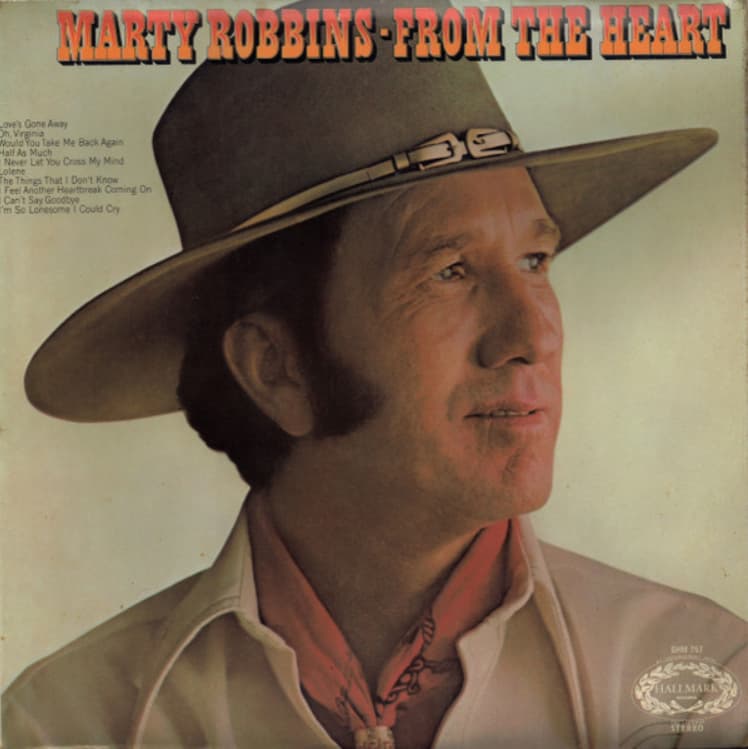
A cowboy’s love for his horse, a tale of loyalty told through the eyes of a true drifter.
There’s a certain kind of dust that settles on the memories of a life lived out west, a fine, golden powder that glitters in the light of a fading afternoon sun. For many of us, that dust is inseparable from the voice of Marty Robbins. He was more than a country singer; he was a troubadour of the American West, a storyteller who could paint a whole, sweeping landscape with nothing but a few guitar chords and a perfect phrase. While some of his songs were about gunfights and ill-fated romances, others, like the poignant and deeply felt ballad “Old Red,” were about a more fundamental kind of love—the kind between a man and his horse.
“Old Red” wasn’t a standalone single that raced up the charts like his iconic hit “El Paso.” Instead, it found its home on the flip side of a 1965 release, a testament to its quieter, more profound nature. The song was featured on the album Return of the Gunfighter, a 1963 collection that marked a return to the Western themes that had defined his career. However, the song’s true legacy isn’t measured in chart positions, but in the hearts it captured. It’s a song that has endured not as a commercial blockbuster, but as a timeless folk-country narrative, beloved by those who appreciate the deep, unspoken bonds of ranch life. It’s a song that feels like it’s been passed down from one generation of cowhands to the next, a part of the campfire lore itself.
The story of “Old Red” is told from the perspective of a seasoned cowboy looking back on his life and his most cherished companion. He speaks of a wild, red roan horse he broke as a young man—a horse that was more than just a mount. Old Red was a partner in every sense of the word, sharing the triumphs and the hardships, the long days under the blistering sun and the lonely nights under a canopy of stars. The song’s genius lies in its simplicity. It doesn’t rely on dramatic gunplay or tragic romance; its power comes from the slow, steady build of a life shared. The cowboy reminisces about the horse’s strength, its “heart of gold,” and the way they faced down cattle drives, floods, and blizzards together. As the years pass and the cowboy himself grows old, he finds himself sitting on his porch, watching Old Red run free in the pasture. He muses on the unbreakable bond they share, a loyalty that time and age cannot diminish. The song’s ultimate message is a powerful one: some things are more valuable than gold. It’s a tribute to hard-earned trust and a quiet, profound respect for a noble animal.
For many of us who grew up listening to these songs, “Old Red” is more than just a tune; it’s a portal to a bygone era. It transports us to a world of open ranges, weathered saddles, and the simple truths that defined a man’s character. The song’s nostalgic tone, delivered in Marty Robbins’ smooth, reassuring baritone, feels like a conversation with an old friend, a shared moment of reflection. It evokes memories of a time when life moved at a different pace, a time when a man’s word and a good horse were all he needed. You can almost feel the calluses on the cowboy’s hands and the warmth of the sun on your face as you listen. It’s a bittersweet melody that reminds us that while we all grow older, the memories of true loyalty and unwavering friendship, like the spirit of Old Red, will never fade away.